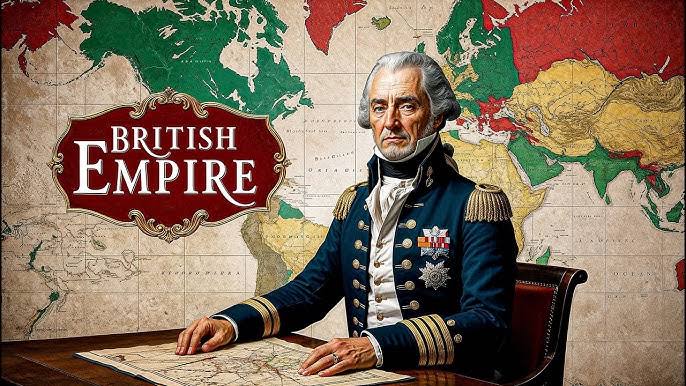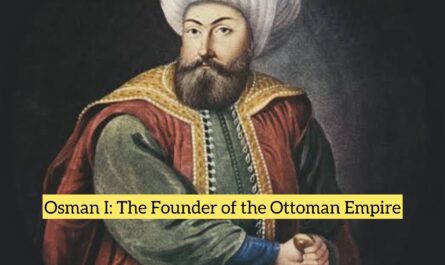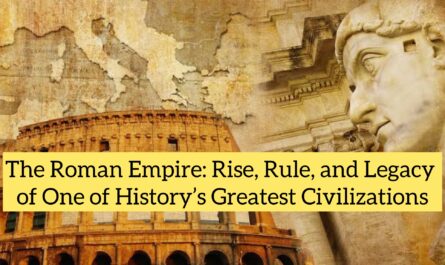Introduction
The British Empire was the largest empire in history and a dominant global power from the 17th to the mid-20th century. At its height in the early 20th century, it controlled nearly a quarter of the world’s land area and population, spanning continents and shaping international politics, economics, and culture. While it brought infrastructure, trade, and governance systems to many parts of the world, it also imposed colonial rule, economic exploitation, and cultural transformation—leaving a mixed and deeply complex legacy.
Origins of the Empire
Foundations in Trade and Exploration (16th–17th centuries)
The roots of the British Empire lie in:
-
The Age of Exploration, as England sought trade routes and overseas wealth.
-
The establishment of companies like the East India Company (1600) and the Royal African Company.
-
Rivalry with Spain, Portugal, and the Dutch for overseas colonies.
Key early colonial efforts included:
-
Ireland – England’s first experiment with colonization.
-
North America – Colonies like Virginia (1607) and Massachusetts (1620).
-
Caribbean – Acquired profitable sugar-producing islands like Barbados and Jamaica.
The First British Empire (1600–1783)
This phase was characterized by:
-
Colonial settlements in the Americas and the Caribbean.
-
The transatlantic slave trade, involving the forced transport of millions of Africans to the Americas.
-
Mercantilism – economic policy emphasizing exports and control of trade routes.
American Revolution (1775–1783)
The loss of the Thirteen Colonies after the American War of Independence marked a major setback. However, Britain shifted focus to Asia, Africa, and the Pacific, setting the stage for a new phase of imperial expansion.
The Second British Empire (1783–1914)
Expansion in Asia
-
India became the “jewel in the crown” of the empire. After the Battle of Plassey (1757), the East India Company gradually gained control over Indian territories.
-
Following the Indian Rebellion of 1857, the British government took direct control, establishing the British Raj (1858–1947).
Africa and the “Scramble for Africa”
-
Britain acquired vast African territories during the late 19th century, including:
-
Egypt (control over the Suez Canal)
-
South Africa
-
Nigeria, Kenya, Sudan, and others
-
Pacific and Oceania
-
Australia was established as a penal colony (1788).
-
New Zealand, Fiji, and other Pacific islands were gradually colonized.
-
Canada, Australia, and New Zealand evolved into self-governing dominions.
Global Trade and Industrial Power
-
Britain led the Industrial Revolution, becoming the “workshop of the world.”
-
The empire ensured access to raw materials and markets across the globe.
-
Naval dominance protected trade routes and colonies.
The Victorian Era and Imperial Zenith (1837–1901)
Under Queen Victoria, the empire reached its territorial and political peak:
-
The Great Exhibition (1851) showcased imperial wealth.
-
The British East India Company was dissolved after 1857, leading to direct rule in India.
-
Canada, Australia, and New Zealand moved toward self-government but remained loyal to the Crown.
The Victorian era also saw growing debates about:
-
The “civilizing mission” – the belief that Britain had a moral duty to bring progress and Christianity.
-
Imperialism vs. liberalism – economic benefit vs. ethical concerns.
The World Wars and the Beginning of Decline
World War I (1914–1918)
-
Britain mobilized its empire for the war effort: Indian, African, and Caribbean soldiers fought in Europe.
-
The war drained British resources and began to stir independence movements in colonies.
Interwar Period and Rising Nationalism
-
Ireland gained independence (1922) as the Irish Free State.
-
Indian National Congress and leaders like Gandhi began mass movements for independence.
-
Mandates were added after WWI, such as Palestine and Iraq under British control.
World War II (1939–1945)
-
The empire again mobilized globally, but the war severely weakened Britain economically.
-
After WWII, the empire rapidly declined due to:
-
Nationalist movements
-
Economic constraints
-
Changing global attitudes toward colonialism
-
Decolonization (1947–1997)
Key Independence Movements
-
India and Pakistan gained independence in 1947, followed by:
-
Burma (Myanmar) and Sri Lanka (Ceylon) in 1948
-
Most of Africa during the 1950s–1970s (e.g., Kenya, Ghana, Nigeria)
-
Caribbean nations in the 1960s–1980s
-
End of the Empire
-
The Suez Crisis (1956) symbolized Britain’s diminished global role.
-
Hong Kong, Britain’s last major colony, was handed back to China in 1997, symbolizing the final end of the empire.
Legacy of the British Empire
Positive Legacies
-
English language spread globally.
-
Common law systems implemented across many countries.
-
Railways, infrastructure, and education systems introduced in colonies.
-
Formation of the Commonwealth of Nations, a voluntary association of former colonies.
Negative Legacies
-
Exploitation of resources and labor in colonies.
-
Cultural erasure and racism imposed through imperial rule.
-
Partition of nations, such as India and Palestine, leading to ongoing conflicts.
-
Economic dependency and inequality in former colonies.
Cultural Influence
-
Global diffusion of British literature, institutions, sport (e.g., cricket, football), and political ideas like parliamentary democracy.
-
Complex hybrid cultures in former colonies.
Conclusion
The British Empire fundamentally shaped the modern world, for better and for worse. Its legacy is deeply intertwined with the histories, identities, and geopolitics of dozens of nations across the globe. While it spread ideas, infrastructure, and institutions that continue to influence global systems, it also wrought profound social and cultural upheavals, many of which are still being addressed today. Understanding the empire is essential to understanding modern history and the roots of current global relations.



